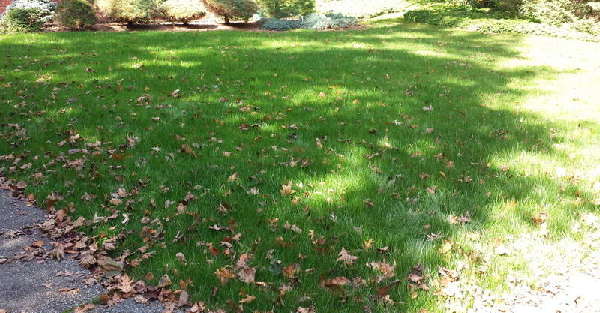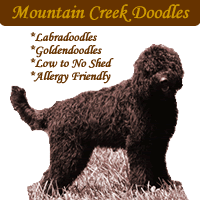| Click to Post a New Message!
Page | [ 2 ] |
| | |
|
 Mulching instead of raking
Mulching instead of raking
Jon: I'm reasoning here that anything that speeds composting really means increased bacterial action and that likely means more heat. The first two years I used my pit I didn't add fertilizer or commercial accelerant as I had to my smaller city pits because I wasn't sure how the larger one would act. The first two years, leaves added in the fall weren't completely composted by next fall but I didn't notice any signs of heat. I used a bit of 7-7-7 on the surface this spring after mounding and composting was complete this fall. So I think the fertilizer speeds things a bit.
The piles I saw smoldering in the park were 15' - 20' high. There is a sizable oak forest in the park and the forestry folks must have been managing the forest. Seems like they culled some trees, buzzed up the trunks, chipped the smaller stuff and put the chips and sawdust in several piles with log sections off to the side. I don't think they were composting it. I hadn't seen it before, but it was definitely significant amounts of wood smoke coming out of the piles. I can't remember if there was much rain that summer or not.
My leaf composting isn't anything like the wood chip piles but the park experience caused me to think about what I'm doing with my compost pit in the bush. I have a vague recollection that ensilage in silos has to be managed or there's some potential for fires, but that would go back to my city kid days on the farm so I may not have it right.
|
|
 Add Photo Add Photo
Bookmarks: |
|
| |
|
 Mulching instead of raking
Mulching instead of raking
Tom, the pile was Smoldering because of the sawdust. It's like hay or grass clippings, Dense keeps the heat in. My Loam pile is mostly loam and a few stumps about 350 yards. It's not a compost pile that I can turn every so often.
David
|
|
 Add Photo Add Photo
Bookmarks: |
|
| |
|
 Mulching instead of raking
Mulching instead of raking
Tom, you made good sense so I wanted to find out more. (If my compost pile catches fire, it would set off a grove of Eucalyptus and take my house and neighbors house with it.) I found news articles and some info sites on sawdust piles spontaneously combusting, and some on woodchips and even more on hay. The best discussion relating to compost piles is linked below, from the University of Minnesota. The part on spontaneous combustion says this:
Questions sometimes arise about spontaneous combustion in compost piles. Spontaneous combustion is the occurrence of fire without the application of an external heat source and can be caused by chemical, biological, or physical processes. Organic material can ignite spontaneously due to biological activity at moisture contents between 26-46% moisture if the temperature exceeds 200 degrees F. These high temperatures only occur with restricted air flow and piles exceeding a height of seven feet. Spontaneous combustion happens to stored hay or silage and only in rare cases to compost. No documented cases of spontaneous combustion have been reported for compost piles smaller than seven feet. Most reported fires occurring in compost piles are the result of external sources such as matches or the addition of hot ashes. In short, a well maintained compost pile with temperatures less than 150 degrees F will not spontaneously combust. If a compost pile gets too hot--more than 160 degrees F--you can cool it down by 1) reducing the size of the pile; 2) adding water to 55% moisture; or 3) mixing in coarse, bulky material such as wood chips. Compost piles work best at temperatures between 130-150 degrees F.
-so it's not a worry if we take care of the compost pile. Thanks again.
Link:
|
|
 Add Photo Add Photo
Bookmarks: |
|
| |
|
 Mulching instead of raking
Mulching instead of raking
Jon: Thanks for your comment. The web link is very good, and now I can put numbers to what I was speculating about. I guess the conclusion is that there's little worry as long as a person doesn't get carried away and start beavering away with their composting works.
It's curious the web site didn't mention lime. I always heard that it a combination of lime, nitrogen, soil and water that works best. I'll probably keep using lime because that's what I've always heard and I figure that since I'm using soil that basically from a pine forest, it's probably already acidic to start with.
|
|
 Add Photo Add Photo
Bookmarks: |
|
| |
|
 Mulching instead of raking
Mulching instead of raking
I just did my leaves taking a different approach this year. I have a JD4100 that has the mulching attachment for the 60 inch deck. I put a lawn sweeper behind the tractor. This set up made quick work of my leaves and gave my lawn a final cutting. I have some big trees such as Sycamores that drop some big leaves. For heavy concentrations, I went over the leaves first with the mower off and pickec up a lot with the lawn sweep. I then went over it with the mower on. It chopped up what was left and the lawn sweep picked up most of it.
My lawn looks great. I am very pleased with the results.
|
|
 Add Photo Add Photo
Bookmarks: |
|
| |
|
 Mulching instead of raking
Mulching instead of raking
I'm a commercial cutter and mulch the leaves to dust every year. You have to be careful with the higher acidity of leaves like Oaks but for the most part you will enjoy a healthier lawn if you mulch them in.
My mowers are set up with double blades with the Atomic or Gator type blade on the top and a high lift to the bottom. I use a discharge cover plate or mulch plate to gringd them up. If they are too thick I make a couple of passes and very seldom have to pick any debris up. I can reduce 100 bushels to less than 5. Good Luck
|
|
 Add Photo Add Photo
Bookmarks: |
|
| |
|
 Mulching instead of raking
Mulching instead of raking
I never do either for leaves or grass clippings.
I'ts worked fine here for 38 years!
|
|
 Add Photo Add Photo
Bookmarks: |
|
| |
|
Page | [ 2 ] | Thread 44875 Filter by Poster:
2 | 1 | 2 | 1 | 2 | 2 | 1 | 1 | 1 | 4 |
|
()
Picture of the Day
DennisCTB
Unanswered Questions








Active Subjects








Hot Topics








Featured Suppliers

|



 Gas Generator Weather Protecti
Gas Generator Weather Protecti Horse Injured Polyrope Electri
Horse Injured Polyrope Electri Do electric fences keep out de
Do electric fences keep out de Any Peruvian Paso Owners Out T
Any Peruvian Paso Owners Out T gas powered post driver
gas powered post driver My new born foal is really sic
My new born foal is really sic Trailer Axle
Trailer Axle dump trailer blueprints
dump trailer blueprints Gas Generator Weather Protecti
Gas Generator Weather Protecti Went to see Dennis Reis this w
Went to see Dennis Reis this w Signs to look for prior to lab
Signs to look for prior to lab leg injury
leg injury Broodmare has welts all over h
Broodmare has welts all over h Some Christmas Humor For Horse
Some Christmas Humor For Horse poles in the ground vs. concre
poles in the ground vs. concre ever thought about moving?
ever thought about moving? new app owner
new app owner Some Christmas Humor For Horse
Some Christmas Humor For Horse Any Peruvian Paso Owners Out T
Any Peruvian Paso Owners Out T Heating a Garage
Heating a Garage Gas Generator Weather Protecti
Gas Generator Weather Protecti Do electric fences keep out de
Do electric fences keep out de gas powered post driver
gas powered post driver Trailer Axle
Trailer Axle

